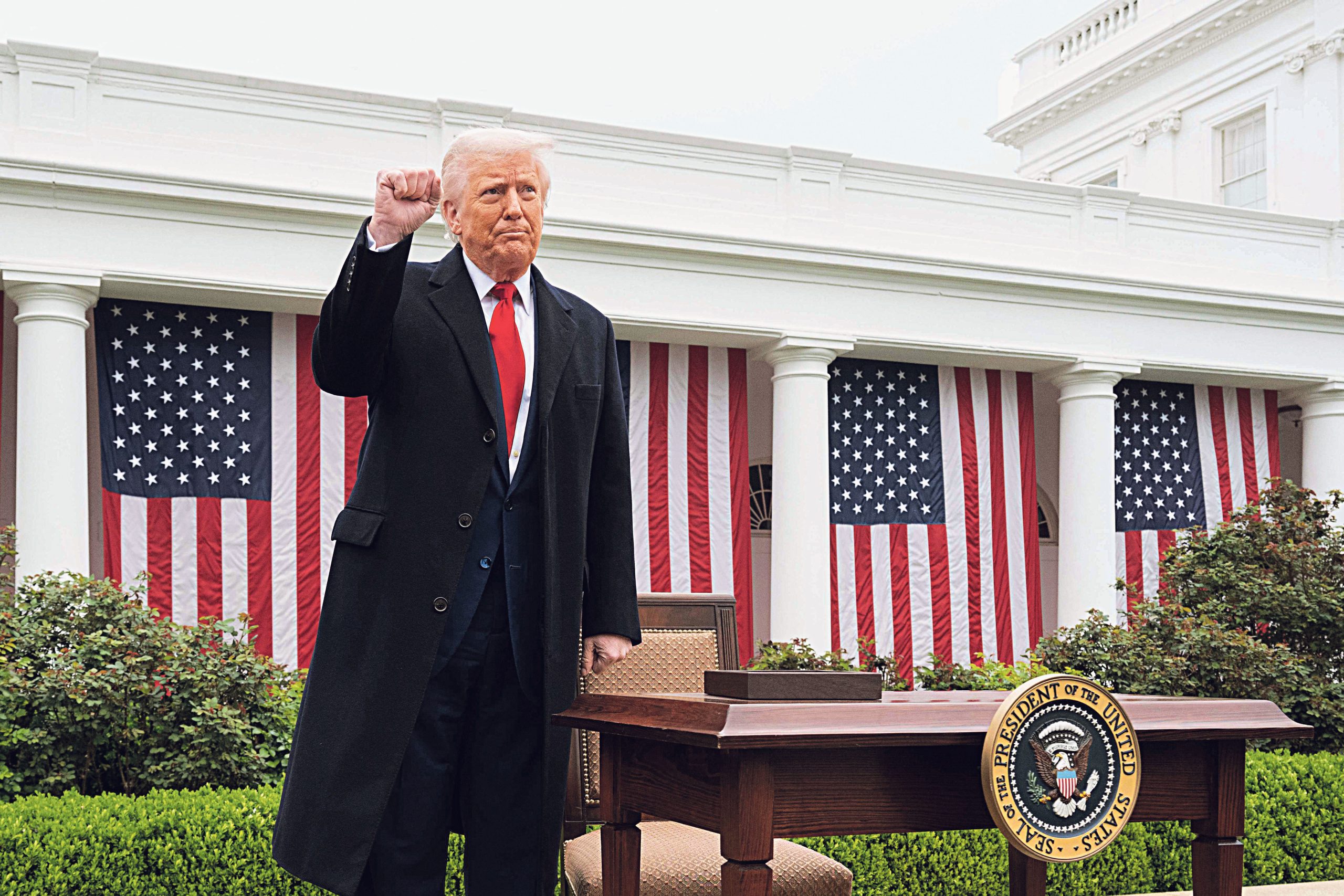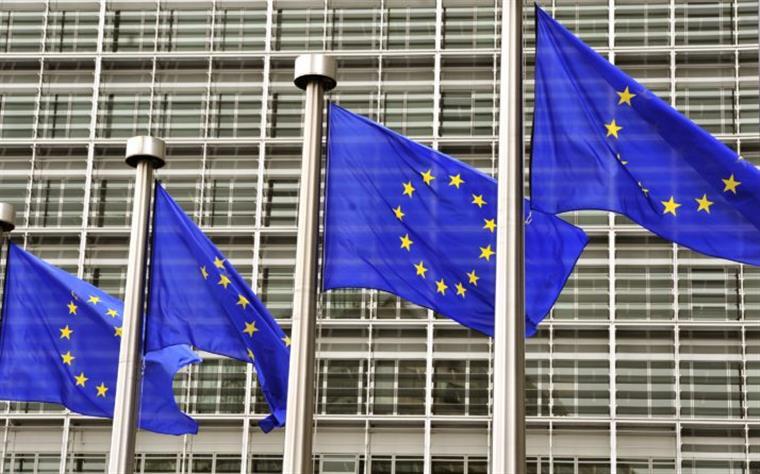Portugal will also feel consequences

Although many expected that the US President was doing Bluff, Donald Trump even announced reciprocal tariffs for « countries around the world. » The European Union was affected with a 20%rate, Japan with 24%, the UK with 10%and China with 34%more (totaling 54%).
The 10% base fare will come into force this Saturday, retaliation on April 9 and car tariffs have already entered into force this Thursday.
Defending that April 2 will be « forever remembered by the day the American economy was reborn, » Donald Trump has shown that « the country has been harmed by these unfair trade relations and this will end. » He called him « principle of reciprocity. » The rates will be, for each country, half of what each is the US.
Although perhaps at a smaller scale, Portugal will also feel these consequences. Let’s look at the numbers. According to data from the National Institute of Statistics, the United States are one of the main buyers of our country. And in the trade balance, it is Portugal who is gaining. US imports cost our country about 2.4 billion euros in 2024. But, on the contrary, they were exported to the same country, products worth about 5.3 billion euros. More than double.
Products from food industries, mineral products, chemical, plastic and rubbers products, pharmaceutical products and textile materials are the leaders of Portuguese exports.
Paulo Monteiro Rosa, an economist at Banco Carregosa, argues that, although our country is not one of the main exporters for the US on the European scale, « tariffs will have indirect effects relevant to the Portuguese economy. » First is ‘widespread increase in tariffs on all imports for the US, including those from the European Union, could affect some Portuguese companies with US market exposure, namely in the agri-food, wines, textile and shoe sectors, which export a relevant part of their production to the US’.
In addition to the direct impact on exports, the economist says that Portugal will be affected, « above all, by the indirect effects resulting from economic slowdown in the European Union and International Trade » since our country « is a very open economy – in 2023, the value of exports and imports represented about 89% of GDP, placing the country among the most exposed economies to foreign trade in the European Union. »
This means that any breakdown in European exports to the US, worsening commercial tensions or softening global trade – or even strong economic deceleration and eventual recession – « will have a direct impact on Portuguese economic activity, either by reducing external demand, increasing uncertainty and deteriorating financial conditions, » said Paulo Monteiro Rosa.
In his opinion, a more adverse international environment « can negatively affect foreign investment, reduce the confidence of economic agents and lead to a decrease in foreign investment in Portugal, which has been, in recent years, one of the three main pillars of Portuguese economic growth above the European average – along with the increase in the employed population and the growth of tourism. »
Already Henrique Tomé, analyst of XTB, is the opinion that the impact of tariffs on the Portuguese economy will be, for now, limited. «We can even look at the capital market this morning (Thursday), where PSI is still valuing 0.4%, contrary to the main European squares, such as the German index, which is retreating more than 2%, as well as the French index (-2.44%) or even FTSE 100 (-1.47%), which, despite being less impacted than the EU, is reacting to the 10%».
However, it recalls that this is a short -term analysis, given that it is still necessary to understand what impacts these tariffs will have on the community block as a whole « and, from there, what are the real consequences for the Portuguese economy ».
And it must be borne in mind that the Portuguese economy seems to be accountable to the future with Pedro Reis, Minister of Economy, to summon the dozens of business associations in the country to gather from April 9 to 11 to talk about this subject.
Also, there are even those who are already doing math. The president of the Porto Wine Companies Association warned that wine orders were suspended or canceled for the US market before the announcement of new tariffs.
‘Widespread price rise’
At the sunrise, Henrique Tomé said that, given that the tariffs will have different weights, « it is difficult to predict a widespread effect that applies to all markets. » However, it ensures: « We can expect widespread prices climb, which will naturally be more aggravated in countries that suffer higher rates. »
On the other hand, the analyst says that this application of tariffs « is leading investors to study alternative solutions » and « since several NATO countries have already appealed to a reinforcement of defense budgets, especially European countries, and that Germany has already announced an investment of 500 billion euros in national industry, European markets may end up benefiting from this more aggressive US policy. »
Asked about the consequences of this decision of the American administration to the world economy, Paulo Monteiro Rosa has no doubt: ‘slowdown in international trade, as these tariffs and retaliation already announced by various countries – such as the European Union, China and Canada – will reduce the volume of trade and make transacted products out.’
For the economist, this commercial tension may also increase the risk of recession, « not only in the US, but also in other economies strongly dependent on exports and open trade. »
And he says that « a retreat at the level of globalization is always a inflation factor. » What does this mean that tariffs should increase inflationary pressures, especially in the US, « reflecting the increase in import prices, which may have an impact on US consumer purchasing power and forcing the US Central Bank to maintain high interest rates for longer. »
In addition, it will also have consequences at business and many multinationals « should accelerate the process of reorganization of their production chains, looking for alternatives outside the tariff countries or opting for domestic production, even at higher costs. »
On the other hand, this climb of trade war can, in the opinion of Paulo Monteiro Rosa, increase the risk of recession in the US, « which could justify faster cuts of Fed’s interest rates. »
European retaliation
The European Commission, which had promised to respond to US tariffs, was even mild in response. At least for now. This Friday begins negotiations with Washington. «We will act in a calm, carefully phased and unified way as we calibrate our answer, giving enough time for the conversations. But we will not be in our arms crossed, if we cannot reach a fair deal, ”said the European Commissioner for Commerce, Maros Sefcovic. The president of the European Commission, Ursula von der Leyen, classified tariffs as a « hard blow », promising counterfeit. Something that, by the way, had mentioned before.
Henrique Tomé has no doubt that the retaliation scenario « would be bad for both parties, as it would lead to a widespread price increase and could aggravate the current climate of commercial war and uncertainty markets. »
Although von der Leyen has shown to ‘talk instead of confronting’, it is true that Brussels’ is finalizing retaliation for steel and aluminum tariffs, and other measures will be implemented if bilateral talks fail. Thus, it is expected that the trade war will be aggravated before being appeased, ”warns the analyst.
In addition to the EU, China has also reacted with the firm promise of retaliatory measures and the US Treasury Secretary threatened with a fault aggravation for countries that choose to respond.
As for the other countries, Henrique Tomé recalls that China had already responded to Trump’s first term, but the EU will also have to go through this process in relation to some products, « if you choose to follow a similar strategy, but some European sectors, namely defense, are attracting investors looking for alternatives to the US market, so they may benefit in the future. »
However, he shoots: « It would be naive not to think that all countries can be harmed in the short term, » as Donald Trump’s plan « can lead to a considerable increase in the cost to US companies themselves due to the need for new investments at the country’s level. » That’s exactly why companies started reacting negatively shortly after the statement.
On the other hand, ‘the fact that it is reducing government costs and increasing tariff revenues allows the US to balance its accounts and reduce debt charges, and the future plan will be to reduce companies’ taxes and attract new investors.’
It is recalled that Donald Trump continues to insist that so far his country has been ‘nice’ to others, something that is not even discarded in Henrique Tomé’s opinion: ‘Looking at the numbers, there were, in fact, several countries that charged tariffs to the US without them responding with similar measures. The European Union is one of these cases, as it was tariff to US imported goods at 39%.
Paulo Monteiro Rosa states that the rates imposed by the US President cover all imports to the US, « which means that all products exported by the European Union to the US market will be subject to these tariffs. »
In practice, these rates focus on a vast set of products that make up a significant part of European exports to the US, including cars, machinery, industrial equipment, agricultural products, alcohol, pharmacists and luxury goods. « These sectors represent an essential component of European foreign trade and are strongly oriented to the US market, » says the economist.
And he recalls that there are countries that have felt more impact than others, such as Germany « whose automotive and heavy machinery industry exports high volumes to the US. » But France and Italy will also be affected, ‘due to the strong presence in the industrial goods, fashion, wines and other products of high value added’. Already Ireland, defends Paulo Monteiro Rosa, is a « special case ». This is because « besides being one of the main European US direct investment destinations, much of the pharmaceutical production installed in the country is intended for the US market. » Additional 25% tariffs specifically applied to pharmaceutical products « directly penalize the Irish economy, to the point that the government itself has recognized a high risk for employment and economic growth. »








